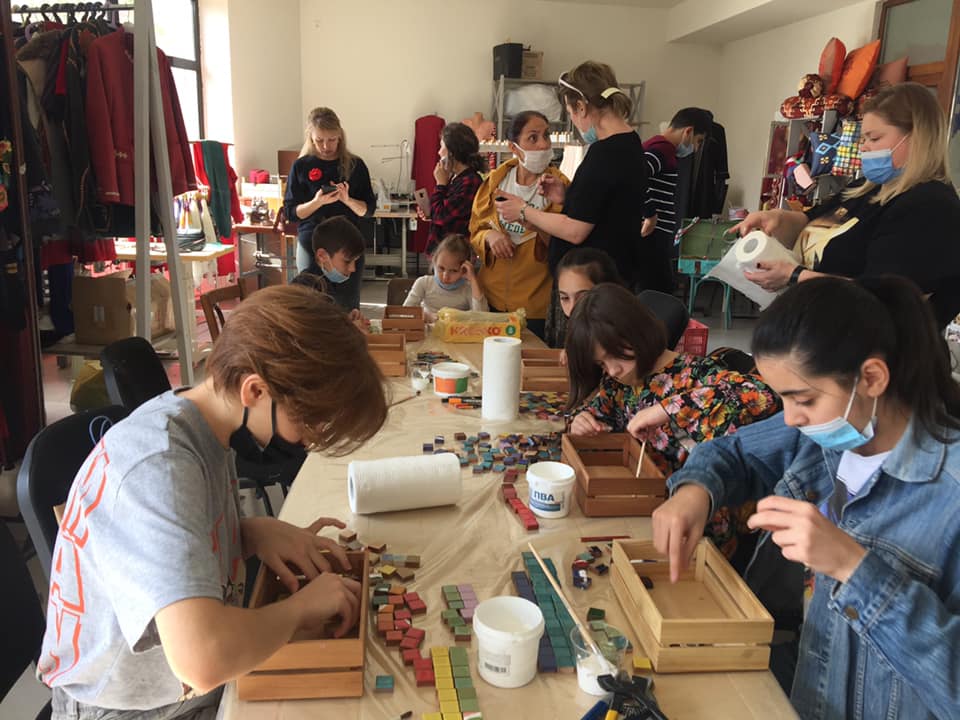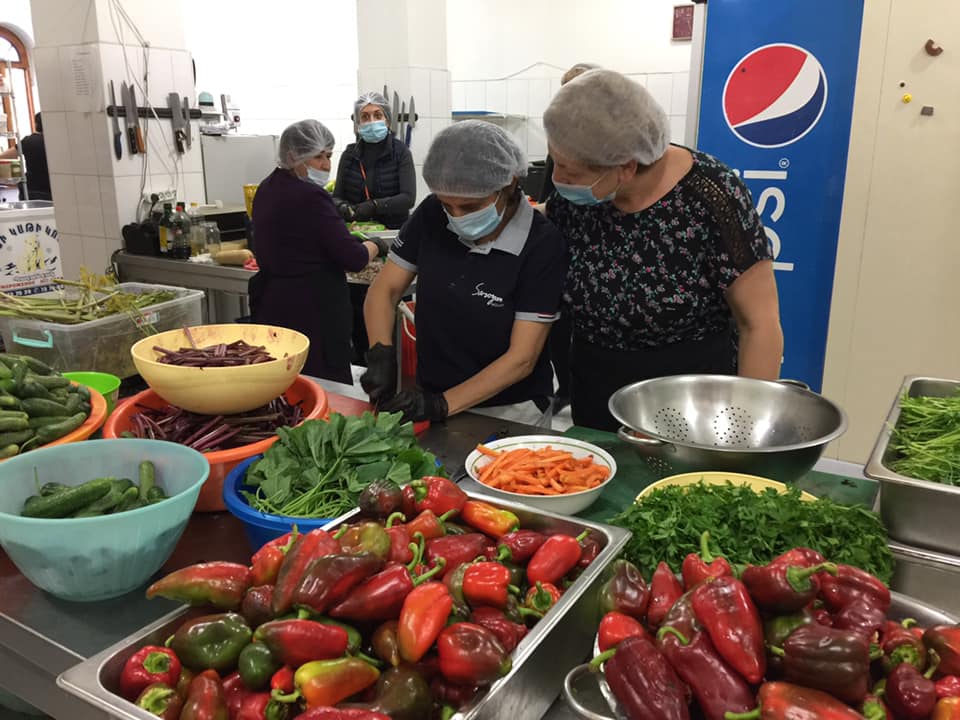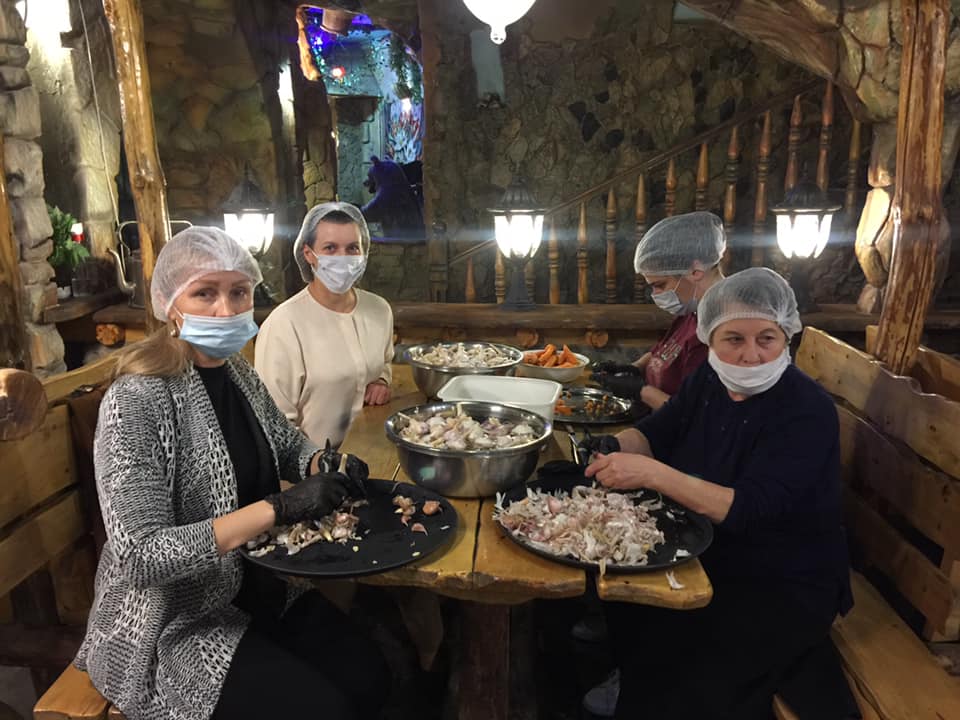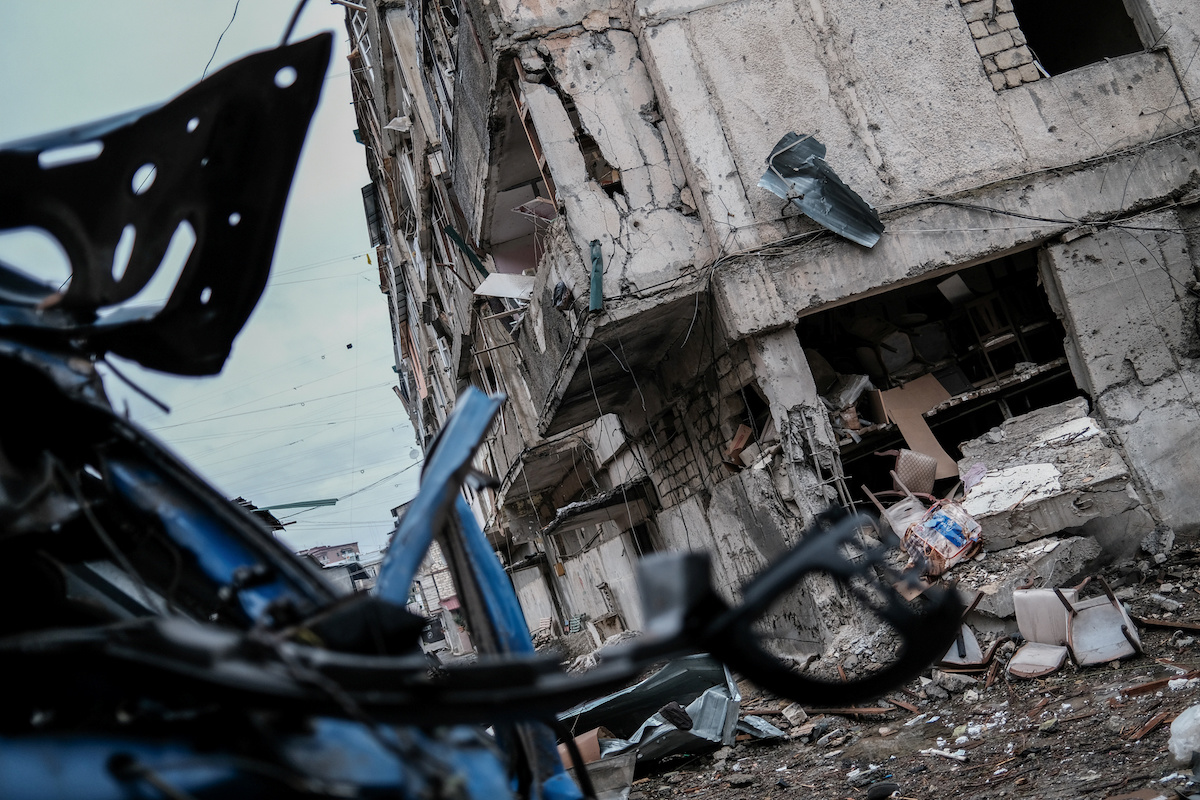90,000 Karabakh refugees setting up new lives after fleeing homes
With the beginning of military actions, a part of Nagorno-Karabakh residents were forced to leave their homes and resettle to safer places, including to Armenia. They had to escape urgently, many of them left their houses in whatever clothes they had on at that moment.
Part of them found shelter in other parts of Karabakh, others migrated to Armenia, where they were taken in by relatives, acquaintances, sometimes even strangers. Some got settled in hotels that didn’t only accept people who ran away from the war, but also took care of their other needs.
The problems of the internally displaced are being currently solved in Armenia not only by authorities, but by local people as well.
Who is trying to solve the problems created by the influx of refugees and how?
•Bells ringing in Yerevan as volunteers go to war in Karabakh. Video
•Karabakh refugees in Goris, Armenia, waiting to return home after war. Photo report
How many people have become refugees?
According to the estimation of the Public Defender of Nagorno-Karabakh Artak Beglaryan, “around 90,000 residents left their homes due to purposeful and non-selective attacks by Azerbaijan”. This includes both internally displaced, i.e. those who moved to safer settlements within Karabakh, and those temporarily moving to Armenia.
According to the statistics department, there were approximately 148,000 people living in Karabakh as of January 1, 2019. It turns out, 60 percent of the population left their homes.
An official evacuation has not been announced in Karabakh. People are moving independently, on their own initiative, says press secretary of the Ministry of Labour and Social Issues of Armenia Sona Martirosyan.
Correspondingly, there is no exact statistics on the number of residents of Nagorno-Karabakh having moved to Armenia. In most cases they move to live with their relatives and acquaintances. There are families that rent apartments.
Business extended a helping hand
Those of the temporarily displaced who didn’t have relatives or acquaintances ready to take them in in their homes, were placed into various hotels and resorts, owners of which voluntarily expressed the wish to accept them.
The Ministry of Labour and Social Issues of Armenia is only coordinating this process. The agency collects addresses of such establishments and directs people in need of an accommodation to these places.
“This is all done privately, the government is not forcing businesses to accept these people. That’s their own initiative”, said the press secretary.
The only people removed from Karabakh in an organized way were patients of the nursing home and patients of the psychiatric hospital. They were placed in corresponding institutions in Armenia.
Support center
In Yerevan, Armenian authorities established a Support Center for displaced people from Karabakh. Here they are provided with food, lodging, and later resettled to a temporary accommodation at specific addresses in the database of the Ministry of Labour and Social Issues.
Representatives of various agencies are permanently present at the Support Center, collecting information on specific needs of people. They get support from social workers and psychologists, special attention is given to children who are sent to local schools and kindergartens.
Press secretary of the Ministry of Education Ofelia Kamavosyan says that all schools in Armenia are open for the arriving children. All they have to do is go to a school nearest to their place of residence and without any documents or limitations sit at a desk. These kids are provided with all necessary books by the schools.
Volunteer Network
Local people also try to help the displaced in their own way. They are organising collection of foodstuff, clothes, and medicine, and trying to solve the issue of accommodation with their own powers.
Actions of volunteers are mainly coordinated on social media where announcements on what type of aid is necessary are posted.
“People came to Armenia in the clothes they were wearing at that moment — some in a dressing gown, some in a thin dress, some in slippers, that’s why the top priority is to provide them with clothes and food. Especially since many families settled with people who are not well-off either. Many of the displaced are elderly people and need medicine. At that, the displaced don’t want to inconvenience the families they live in, that’s why it is very important for us now to organize this help for them”, says volunteer from Yerevan Yelena Shuvayeva-Petrosyan.
Nana Martirosyan came from Moscow to Armenia before the beginning of military actions in Karabakh but decided to stay in Yerevan and together with her friends help families coming from Karabakh.
From the first days of the war, young people started collecting money to help the displaced. Friends from various countries answered their call and keep sending money for purchasing everything necessary for the Karabakh families. Volunteers don’t forget about entertainment either, and organize theater performances and free movies for children.

“I don’t know when foundations will start working, they will surely help these families, but it is today that these people need support. These are sanitary items, clothes, foodstuff, children’s food, and of course, accommodation”, says Nana.
Help in form of work
Nana Martirosyan’s list includes 500 families from Karabakh. These are mainly the elderly, women, and children. It is women that are the ones able to earn a living in these families, and they have already gotten to work.
Volunteers connected them with entrepreneurs who are ready to help them. Some of them are now being taught to sew in dressmaker studios, work and get a salary, others prepare canned pickles in restaurants, some bake the famous Karabakh flatbread with herbs — zhingyalov hats.
Businessmen use a part of the money they earn from their work to pay their salary, while the rest of the amount goes to help other displaced.
Those who live in hotels, summer houses, and apartments provided free of charge started working to express their appreciation too — for example, bake and cook traditional Karabakh dishes. They give the earnings from sales to the establishments they live in. For example, women who were resettled to the Over hotel in Dilijan bake 1000 zhingyalov hats flatbreads daily.

Businesses from scratch
In her previous life before the war Armine Agabekyan worked in the central market in Stepanakert, baked the famous Karabakh flatbread with herbs.
On September 27 she had a large order from tourists, that’s why she had to work all night long.
“Nobody came to pick up the order, because the city bombings started early in the morning, and the tourist customers immediately left for Armenia”, says Armine.
After some time it became dangerous to go to work. Stepanakert residents started hiding from bombings in cellars. Each day situation escalated. On the eighth day the city was being bombed continuously for 5-6 hours.
“My health deteriorated drastically, my husband found a car and sent me to Yerevan in slippers.
Here I got foodstuff as an aid several times, and this only made things worse. What kind of situation am I in? How am I going to live now?” thought Armine.
That’s when she decided to start a business to earn money. She wrote about herself and her idea on Facebook — and people answered her call, helped her with a place, so that she could do again what she was good at — bake zhingyalov hats.
“One flatbread costs 600 drams [a little over a dollar] but many pay more — 1000, 5000, and even 10,000 drams [20 dollars]. I spend a part of this amount for myself and send the rest to the All-Armenian Fund for Army Support. We never know when the war will be over, and we have to support ourselves and help our soldiers too”, she says.
Karabakh pickles in a Yerevan restaurant
Irina Oborina married a Karabakh guy, and in 2017 came from Slavyansk to Stepanakert. Her husband is an officer in the military, they have four children.
In the morning of September 27 Irina was getting ready to go to the market but heard some blasts and didn’t even understand those were exploding shells.
“I didn’t imagine something like this was possible. I thought it was fireworks. But when together with the neighbor we saw smoke from the balcony, she told me it was war — Stepanakert residents know these sounds from the first war”.
For three days Irina stayed with her children and other district residents in a shelter. Afterwards her husband sent her together with the kids to Yerevan, where she was taken in by a stranger family.
“We left home in whatever we were wearing, didn’t take either clothes or footwear. Here kind people took us in, brought clothes. I’d go back to Stepanakert even today, if my husband tells me to come. I’m so worried for him, sometimes I don’t get any news from him for two days in a row. And when he does call and I ask how he is, he always says he’s fine”.
Currently Irina works in a Yerevan restaurant “Mer Tun”. It became famous through the fact that here Karabakh women prepare pickles — and also earn their living.

Future plans
People from Karabakh keep talking about going back even though military actions don’t stop.
“No one knows when the war will be over so that people can go back home, that’s why solution of some social issues, provision of foodstuff, clothes, sanitary items was undertaken by the communities they settled in”, says press secretary of the Ministry of Labour and Social Issues Sona Martirosyan.
Government plans to pay a certain amount of money to owners of houses and establishments that took in Karabakh residents — in particular, to cover the utilities.
The state placement service is creating a database of people who have already expressed their desire to go to Nagorno-Karabakh after the war and participate in construction and rehabilitation works. Over 600 people have already been registered.
How much longer Armenia will cope with the situation, according to researcher of the Caucasus Institute Hrant Mikaelyan, depends on how long the people will not be able to return to their homes.
The longer they will have to stay in the places where they have moved, the more likely they will have to be given some kind of status and appropriate support.
“But, yes, obviously there will be problems. Armenia was already in a deep economic crisis, and now it also suffered great economic damage from the war.
Consequently, the maintenance of displaced persons will be an additional burden. But these people cannot be abandoned, and the funds will be found. The Diaspora will help in humanitarian programs for refugees, in particular, for the maintenance of displaced persons and improvement of their living conditions”, the expert said.



















